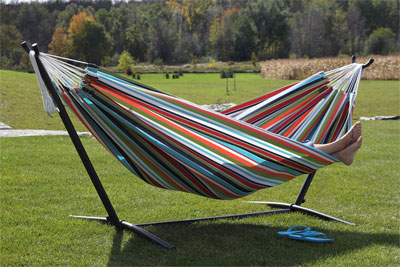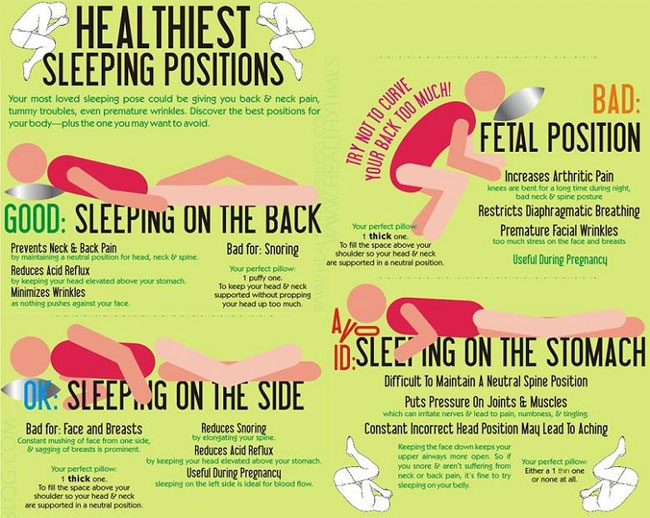
Many of us have heard that it’s ideal to get 7-8 hours of sleep a night. That can be a large undertaking in and of itself. However, the amount of “rest” that we get during that period is a completely different story.
Sleeping position has a big impact on sleep quality, ranging from on your back (best) to on your stomach(worst) – and everything in between.
Not to mention that our bodies typically move throughout the night to achieve the optimal comfort level, which in turn can disrupt our sleep and therefore the rest we are actually getting.
What’s Wrong with Best Sleeping Position?
Even though sleeping on one’s back is touted as “best” due to the fact that it promotes a less interrupted sleeping period, the Better Sleep Council states that this position can actually result in lower back pain and/or sleep apnea. And according to WedMD, snorers should avoid sleeping on their backs because it can obstruct airways.
As far as I know, there hasn’t been enough research done to resolve whether or not sleeping in a hammock helps issues like snoring or sleep apnea. I addition, people who have switched up their sleeping have had mixed results – some with improvements while others not. Here’s more information on the topic.
Why Should We Get Better Sleep?
Sleep is necessary for our bodies to repair themselves. WebMD states that the amount of sleep that we get has been linked to such health problems as heart disease, heart attacks, diabetes and obesity. Good sleep can also lower chronic pain levels. Plus, it can lessen the risk of injury, boost our immune systems and improve our brain power and memory.
Besides feeling groggy in the morning or being in a bad mood, there are many more reasons to find out how to get better sleep.
How to Sleep Better Naturally:
Some people immediately reach for sleeping pills or other sleep aids. However, there are several natural remedies you can try if you have trouble falling or staying asleep.
The Mayo Clinic suggests sticking to a sleep schedule and creating a nighttime ritual that signals to your body that it’s time to wind down and relax (ie a warm shower or relaxing music). You also want to avoid caffeine and alcohol that can disrupt the quality of your sleep. Try it, even if you are able to fall asleep right away.
More Natural Sleep Remedies:
Adding exercise to your daily routine often leads to a deeper and more restful night’s sleep. Try to manage your stress either through relaxation techniques like meditation or by avoiding stressful activities when possible. Lastly, create a dark, quiet space to limit nighttime disturbances.
Avoid stimulating your brain right before bedtime. Some people even suggest reading a boring book (…avoid ones that stimulate your brain to start thinking about new ideas).
Why a Sleeping Hammock?
 I don’t know exactly how hammocks work as far as getting a good night’s rest, I just know that they have worked wonders for me.
I don’t know exactly how hammocks work as far as getting a good night’s rest, I just know that they have worked wonders for me.
If you are familiar with my story, you already know that I first tried a “hammock bed” to relieve my lower back pain. Since then, I have noticed that if I rock the hammock slightly, I fall asleep faster. In addition, I stay asleep for longer and move around less. This probably happens because the hammock wraps around me, providing a comfortable and secure resting environment.
Consider the fact that baby hammocks provide babies with a longer, better rest. Granted, adults are not babies (at least some of them 😉 ). That said, do you think that grown-ups might be able to enjoy these same benefits from a similar sleeping position?
In my opinion, it was worth a try.


